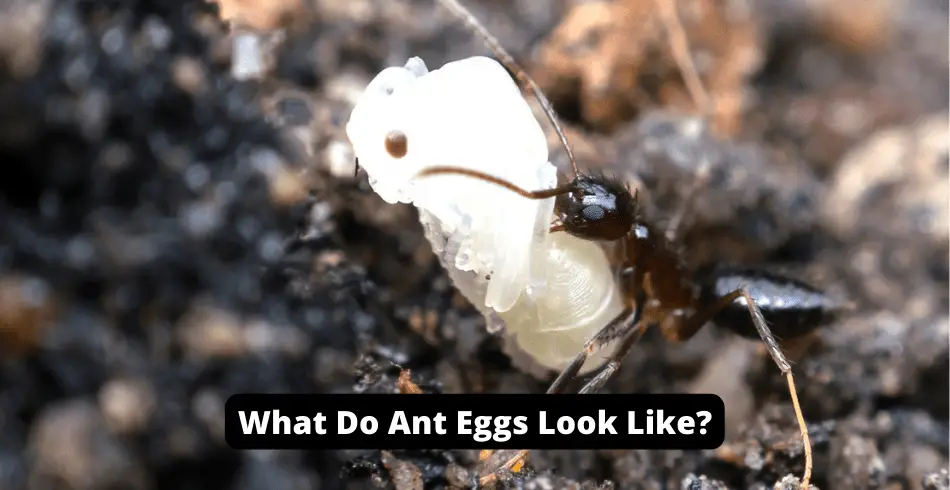An ant’s life is embodied in an oval-shaped fertilized covering called an ant egg.
The egg is the very initial phase of the life cycle of an ant.
An egg of ant is full of protein and nutrition and holds less fat and calories than a chicken egg.
In this article, we will broaden our knowledge about the life cycle of ants, their eggs, how they are formed, how larvae hatch from eggs, and many more.
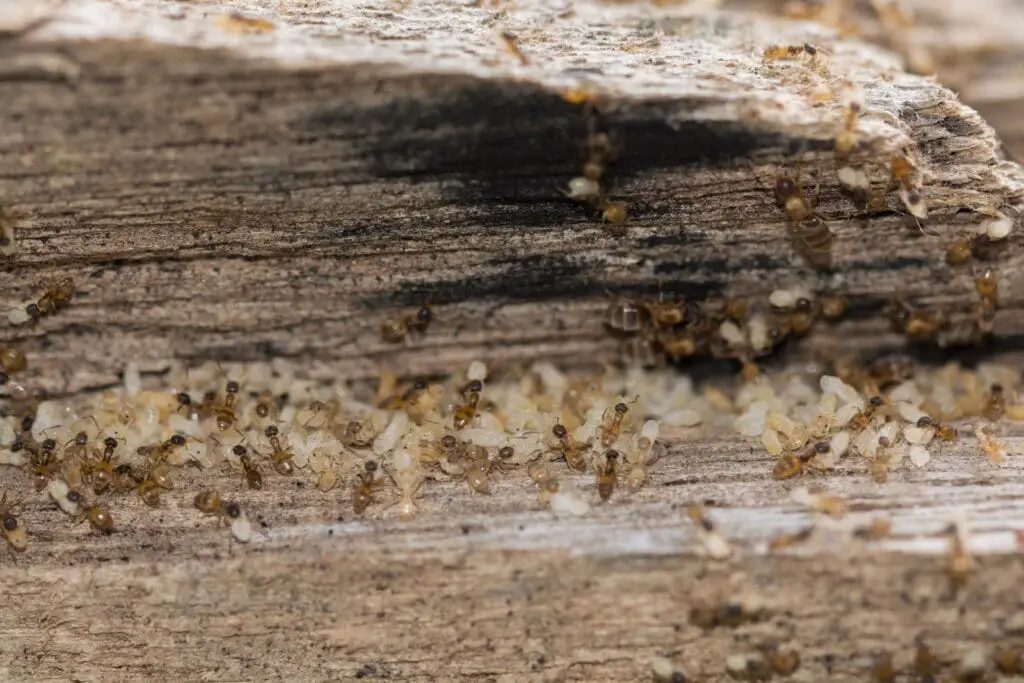
What do ant eggs look like?
Ant eggs are tiny white or cream-colored, round or oval-shaped bodies like beans containing ant life. Most of the time, when you see an ant having a white egg grabbed in her mouth is not an egg, but it’s a pupa. Ant eggs are almost microscopic.
Eggs and pupae of weaver ants are both eggs of ants.
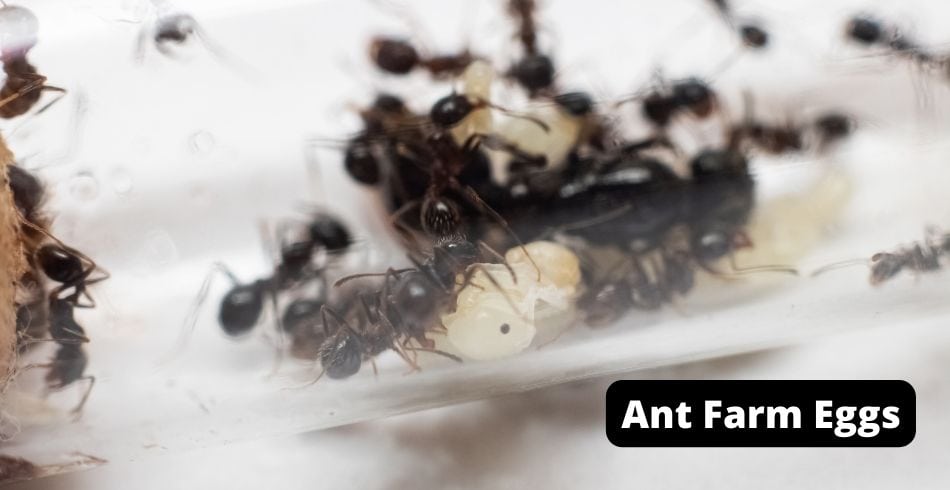
Due to their nutritional value, soup, salad, and omelets made of ants’ eggs are popular in southern Asian countries.
References:
http://www.idph.state.il.us/envhealth/pc_ants.htm
https://en.wikipedia.org/wiki/Ant_eggs
What is the nuptial flight?
Nuptial flight is a reproductive flight in which winged unmated queen ants and male ants of different colonies come out from their nests to mate in the air. After copulating with multiple males, a queen ant finds a nest and begins to lay all the eggs, and initiates a new ant colony.
Ant eggs, reproduced by the queen, begin the ant life cycle. Ant eggs hatch into larvae, and larvae change into pupae. The nest takes special care of both stages.
After landing, menaces shed their wings, a process known as molting.
Thousands of eggs in a new place are destined to become workers when fully grown. The very first members of the colony are raised by the mother alone.
After the ant’s life cycle, grown-up adult worker ants take over the colony’s interests and protect and feed their mother, who now has the sole purpose to stay hidden in her royal chamber and produce workers.
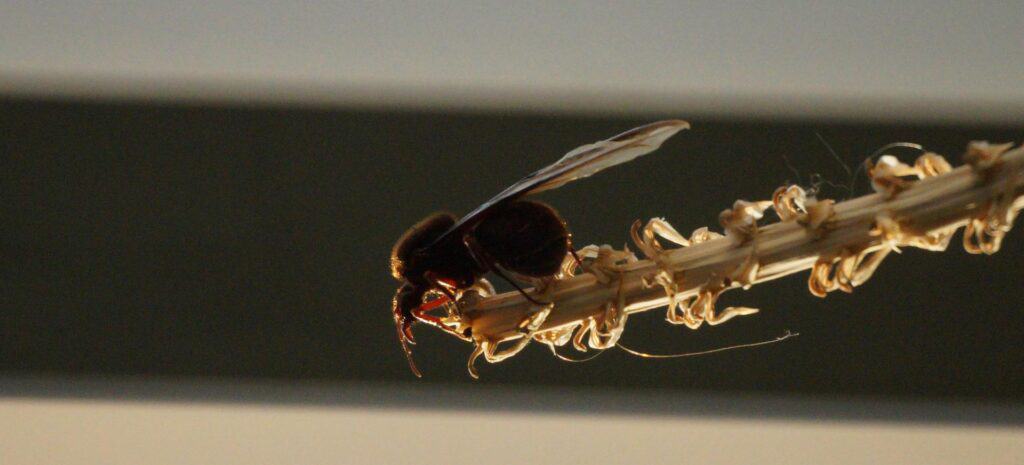
References:
https://en.wikipedia.org/wiki/Nuptial_flight
https://www.amentsoc.org/insects/glossary/terms/nuptial-flight/
How Does Ant Reproduce?
A queen is the only ant in the colony that can lay eggs. She mates with a winged male to produce offspring. Female and male ants often meet during a nuptial flight for copulation. The male passes on sperm to the seminal receptacle of the queen and then dies.
In the receptacle, the sperm remains immobile until the queen decides to use it. Sperm cells are moved to her reproductive system to create fertilized and unfertilized eggs.
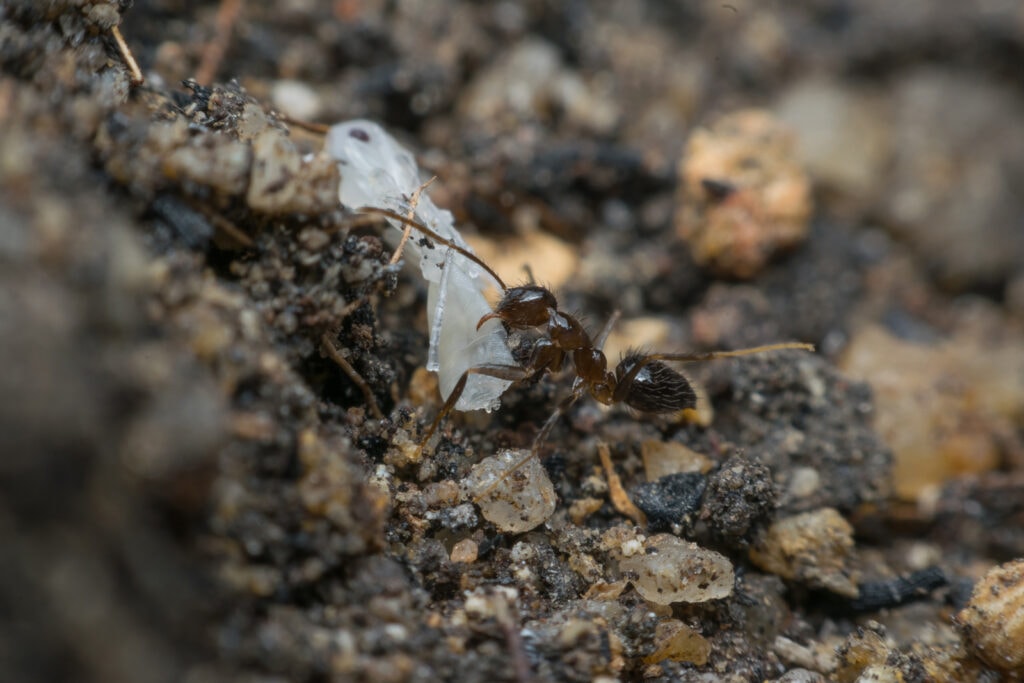
The fertilized eggs develop into females, whereas unfertilized eggs develop into males.
References:
https://en.wikipedia.org/wiki/
Do all ant species lay eggs?
All species of ants lay eggs, but their mode of reproduction may depend on the species. Most of the species reproduce sexually, but some ants can do asexually, also. Parthenogenesis is a common asexual reproduction in ants, where diploid daughters are produced without fertilization.
Cataglyphis cursor is an ant specie whose ant queen gives birth to female workers through sexual reproduction and new queens through parthenogenesis.
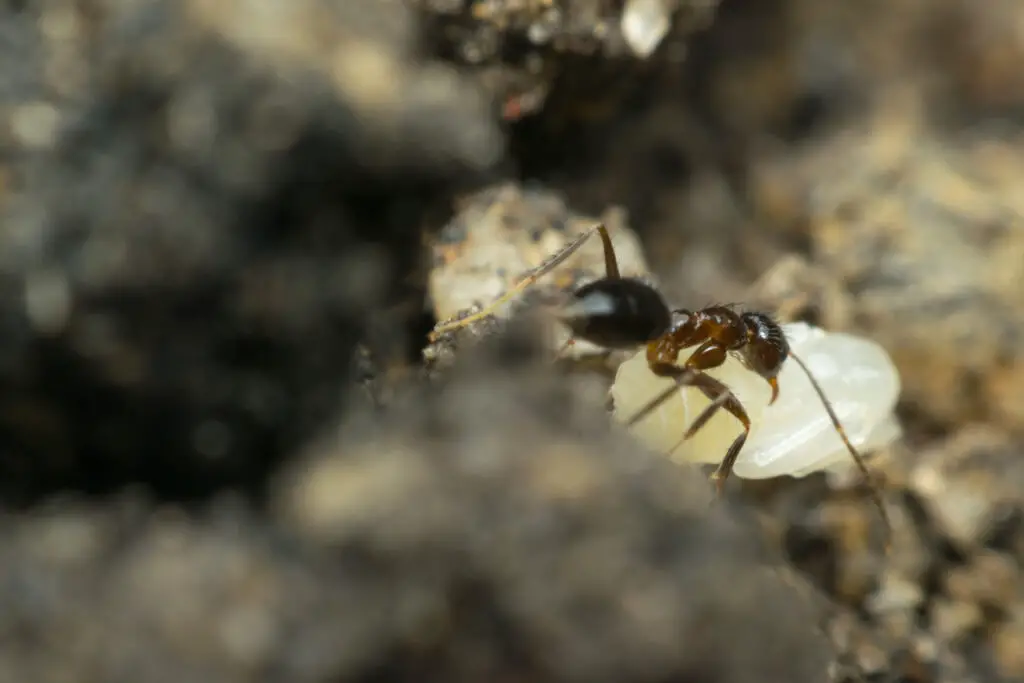
Ants multiply parthenogenetically when environmental conditions are unfavorable and when they have to regulate the number of males and females in the colony.
References:
https://www.nature.com/articles/6800813
Can I start an Ant Farm From Ant Eggs?
You can not start an ant farm from ant eggs because only ants can feed and raise their eggs, larvae, and pupae. You won’t be successful at growing an ant colony from eggs; your eggs will dry out and starve. But you can grow ants in your home by rearing a queen.
To farm an ant nest, pick a royal consort from your garden or backyard during its mating season. The only opportunity to find a queen ant is to search for her in the nuptial flight when thousands of ants appear for copulation.
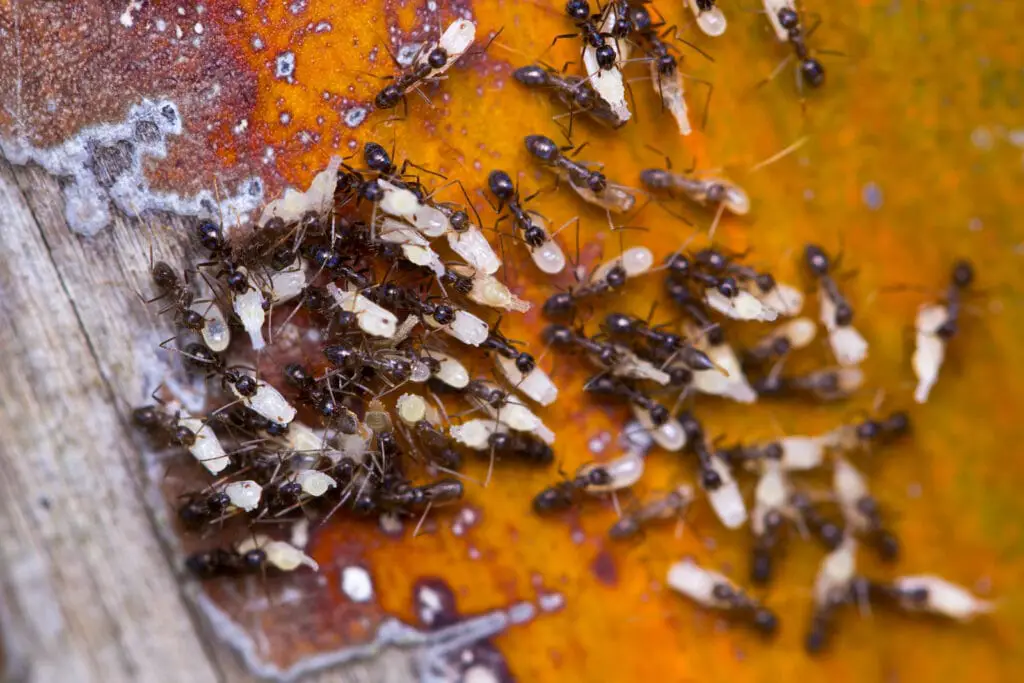
After capturing a queen, place her into a test tube setup.
Test tubes are easy to manage and cheaper as well.
Provide her with food and sugar water until her first batch of workers is up to start foraging for food.
How Long Does It Take for an Ant Egg to Hatch?
The eggs of ants go through a complex ant life cycle. The growing period of eggs depends on the type of ant and the temperature the ants are kept. Eggs become adults between five days to three weeks. The larvae are fed on the food provided by adult worker ants.
In most cases, the development takes at least a month.
The egg hatches into the larvae stage within 10 – 12 days, and the larva makes a cocoon which develops into an ant pupa after 10 – 14 days, and then the pupa from the larval stage will ultimately grow into an adult ant after another 10 – 24 days.
Did you know? – A queen will lay dozens to hundreds of eggs a day which feed on nutritious eggs called trophic eggs laid by the queen.
If I Find A Lot Of Ant Eggs, What Should I Do?
If you find ant eggs, you have an ant invasion in your house. Ants usually come to your place for sweet and greasy foods and water to feed their colony, along with the queen and the ant larvae.
You first need to keep all the food away from ants’ access because you don’t want them to spoil your tasty dinner. Don’t let ants enter your house by sealing holes and cracks in walls.
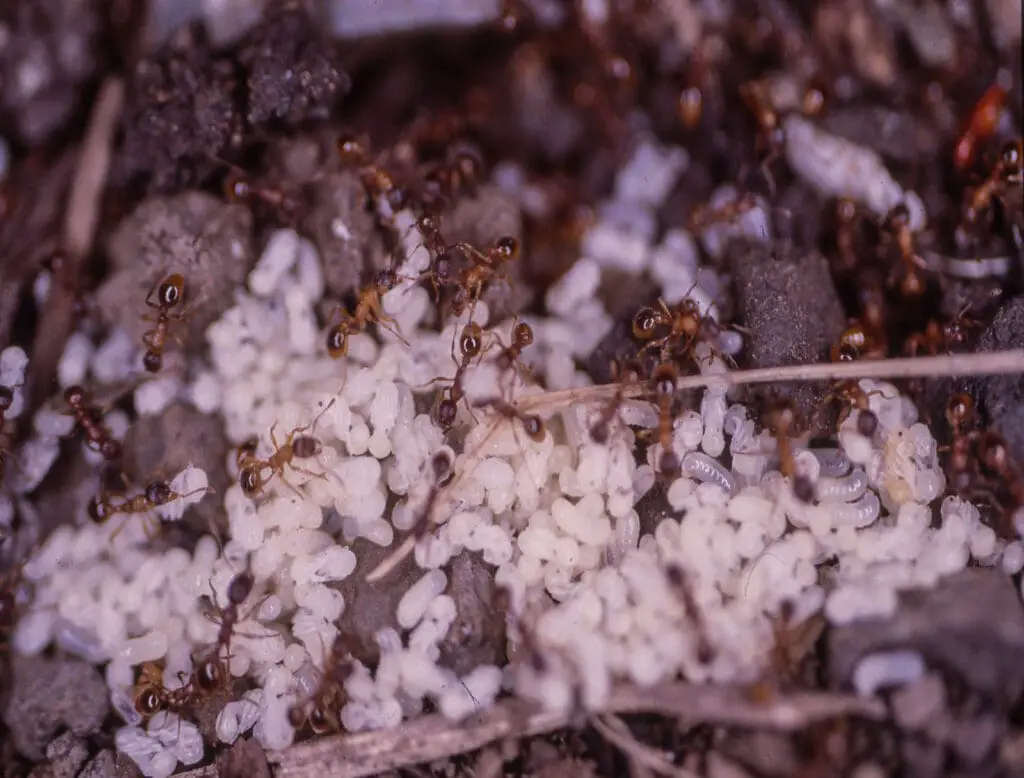
If you want to raise those tiny bugs as pets, provide the nest with sufficient food and water.
Make an ant house, for ants live in colonies, with a jar filled with dirt; collect your ants and carefully place them in the jar; supply food, and water, and you are good to go with your new ant nest.
How Do You Kill Ant Eggs?
The best way to kill ants’ eggs is to encounter the queen. Eggs without their mother can not be nurtured and will die off. Ant baits are an effective way to kill the queen. The female worker ants eat the bait and bring it home to feed the queen.
Pouring hot boiling water over their residence is also beneficial in wiping out the colony, but it’s not the most effective way out there.
Because you don’t know how many pupae and larvae are under the ground, pouring hot water doesn’t ensure the queen’s demise.
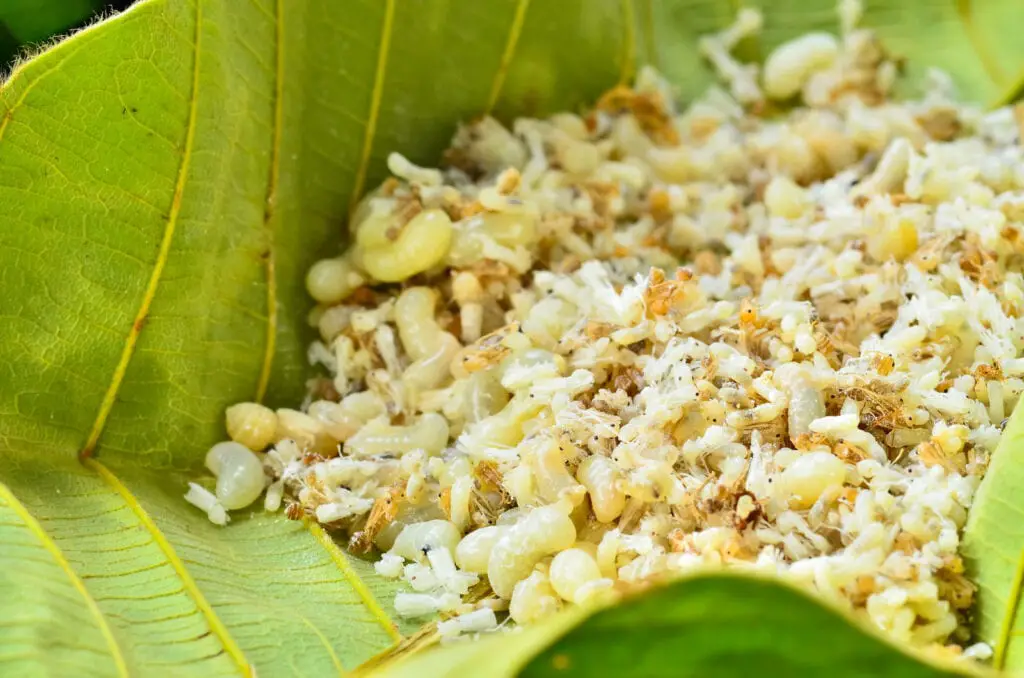
Pesticides are the strongest ant control method but they also harm plants and grass if ants nest in your garden. The most effective natural method to get rid of ant eggs is to use a mixture of boric acid and sugar.
These are social insects that live in colonies, workers will carry the bait to their nest to feed their mother, and then boric acid will play its part and clean the entire settlement of these creepy crawlers.
